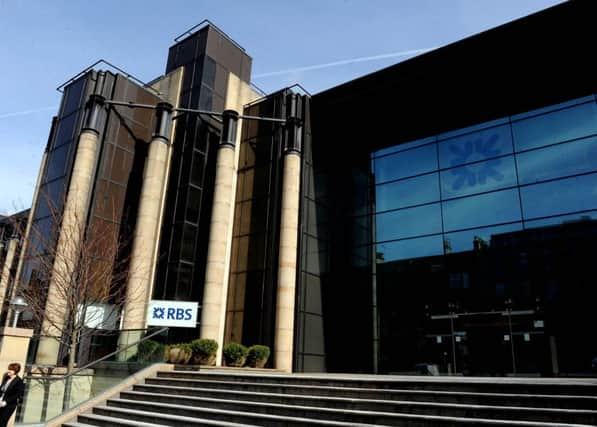Comment: Banks seem incapable of learning lesson


Last week Barclays, Royal Bank of Scotland and four other banks were ordered to pay a total of $6 billion (£3.8bn) by regulatory authorities in the US and UK for foreign exchange manipulation. The fine imposed on Barclays represented the worst such fine in British history.
But far from this being the end of it, these fines, together with an investigation by the European Commission, could prove a springboard for further damaging litigation in the UK and Europe – all this on top of the scandal running total so far of $10bn.
Advertisement
Hide AdAdvertisement
Hide AdAdd on the likelihood of a spare of civil litigation claims by the bank’s corporate customers as a direct result of the regulatory rulings so far and the banks could be enmeshed in law suits for years.
Analysts predict Barclays will have to set aside another £900 million related to the scandal while RBS will take a £700m hit. As if all this is not mind-boggling enough for bank customers, little of this seems to have any impact on the shares of the offending banks. In fact, last week saw shares in RBS gain 3.5p to 355p while Barclays rose 8.5p to 270p – just a whisker below their 12-month high of 271.5p.
We used to be told that some forms of market abuse like insider trading was a “victimless crime”. Now it seems massive fines and penalties are a victimless punishment. The banks carry on much as before, a few rogue traders are fired, senior executives remain in place – and the shares go up.
The reason for the rally last week was that the fines were not as heavy as some had been fearing. So – relief all round in the market and no need to worry?
It is astonishing that banks appear to absorb such huge fines without effort. But clearly the money has to come from somewhere – fees and charges on customers, investment in new products and services – or from revenue that might otherwise have gone to shareholders in dividends.
That this systematic abuse of currency markets via deal-rigging in chatrooms went on well after the 2007-8 banking crash – indeed, was still evident as recently as 2013 – adds further to a sense of a banking system out of control – and an already lengthy list of questions as to whether the taxpayer rescue of RBS and the temporary help Barclays needed from Abu Dhabi had any chastening effect at all on the rotten culture within these banks.
This long-tail saga of cheating, manipulation and market abuse was fuelled among some traders by a contempt for customers (“muppets”). And it inflicts penalties far more wide-reaching and severe than the financial fines themselves.
It undermines the efforts of the vast majority of staff within the banks who have stuck by the rules and sought to help their customers through the recession and its long tail aftermath.
Advertisement
Hide AdAdvertisement
Hide AdAnd it undermines the authority of the leaders who have come after to extricate the banks from their previous excesses, cauterise the cowboy operations of their investment banking divisions and slim down the business to core, sustainable functions in which customers can have confidence and trust. I would put RBS’ Ross McEwan in this category. But every advance he has made to the long-term goal of weaning RBS off taxpayer support and putting RBS on a sure and firm footing is undermined by this near constant stream of bad news on provisions and yet more colossal fines and penalties. When it comes to the longer-term goal of bank reputation repair and recovery, this is the least of the price we are all having to pay.
Compensation culture
From one set of endless regulatory penalties to another… Last week the financial services firm Hargreaves Lansdown hit out at the Financial Services Compensation Scheme (FCSC) for more than doubling the levy it has to pay towards the industry’s mis-selling compensation scheme.
HG has seen its FSCS levy jump from £2.1m to £4.6m as the scheme anticipates a surge in pension claims linked to the mis-selling of unauthorised collective investments.
All told, the FSCS is raising £287m from financial firms this year, up from £276m – funding, it says, that could be required following the government’s pension freedom reforms which could encourage more people to transfer their savings into unsuitable investments.
How telling that for all the assurances that the new pensions freedom will not result in irresponsible behaviour, up goes the levy for an anticipated surge in mis-selling claims!
HG’s chief executive Ian Gorham had denounced the increase as crazy and suggested firms in higher risk areas should be required to take out more insurance or put more capital behind their business to compensate their customers when things go wrong.
As a provider of a low-cost self-invested personal pension (SIPP), he said HG did not offer access to the unauthorised funds that had got some financial advisers and other complex SIPP providers into trouble.
Such a levy hike does seem unfair for firms that can show a clean bill of health and a business model that steers well clear of potential problem products. And I suspect several will challenge this most forcefully in the period ahead.